Search Images
Browse Content (p. 489)
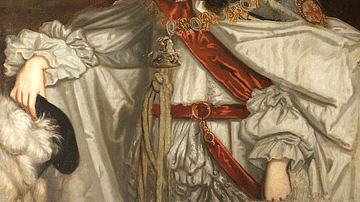
Image
James Scott, Duke of Monmouth
A c. 1682 portrait by Peter Lely of James Scott, Duke of Monmouth (b. 1649). Monmouth was the illegitimate son of Charles I of England and led the failed Monmouth Rebellion against James II of England. He was executed for treason in 1685...
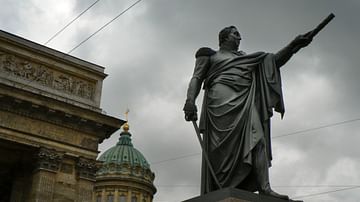
Image
Statue of Mikhail Kutuzov
Statue of Mikhail Kutuzov in St. Petersburg, Russia.

Image
Kutuzov: A Life in War and Peace
Kutuzov: A Life in War and Peace by Alexander Mikaberidze
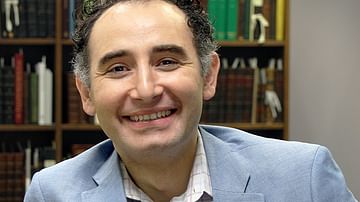
Image
Alexander Mikaberidze
Alexander Mikaberidze, the author of Kutuzov: A Life in War and Peace.
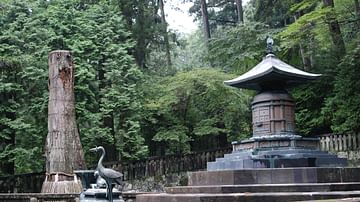
Image
Tokugawa Ieyasu Mausoleum
Tokugawa Ieyasu Mausoleum, Nikko, Japan.

Image
Tokugawa Ieyasu
Portrait of Tokugawa Ieyasu (1543-1616) by Kanō Tan'yū, Edo period.
Osaka Castle, Main Tower.
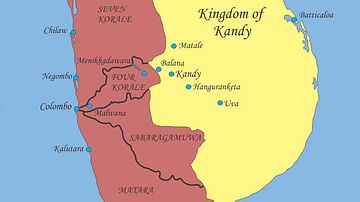
Image
Sri Lanka, Early 17th Century
Political situation in Sri Lanka, early 17th century.

Image
The Median Empire and the Ancient Near East, c. 600 BCE
A map illustrating the rise and expansion of the Median Empire in the wake of the Bronze Age Collapse and the disintegration of the Neo-Assyrian Empire (c. 609 BCE). While the Neo-Babylonian Empire engulfed the Fertile Crescent from the Levantine...
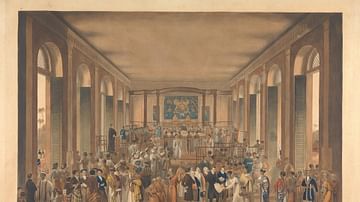
Image
The Supreme Court of Judicature on the Island of Ceylon
The Supreme Court of Judicature on the Island of Ceylon, Colored aquatint by an unknown artist.
Yale Center for British Art.
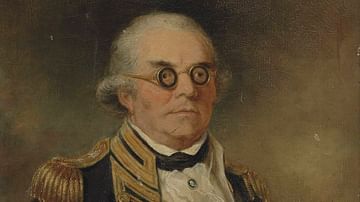
Image
Peter Rainier
Portrait of Admiral Peter Rainier (1741-1808), oil on canvas by Arthur William Devis, 1805.